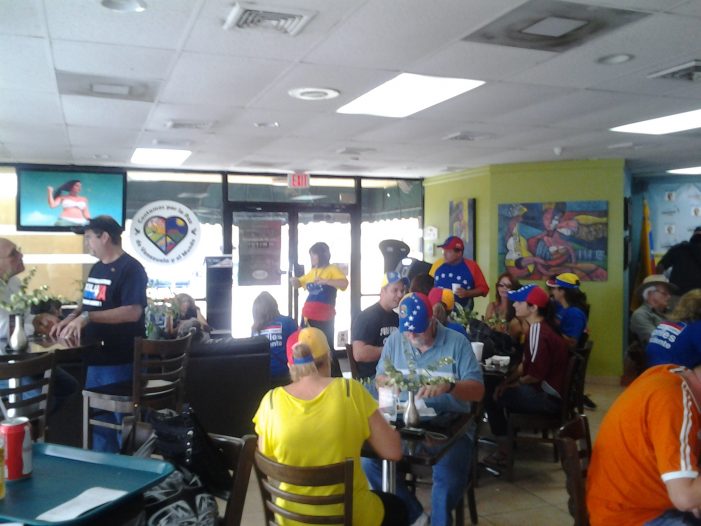Thousands of motivated Venezuelans who live in Miami traveled to New Orleans Saturday so they could vote in their national elections today.
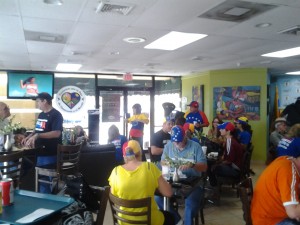
Some hopped on charter flights. Others on buses that left by the bundle from JC Bermudez Park in Doral. Still others drove, in cars packed with family members and neighbors and friends, creating caravans that take them 864 miles so they can cast a vote, most likely for Henrique Capriles Radonski, governor of Miranda state. That’s 14 hours to get there and 14 hours back. Some shelled out $120 and $140 for a seat on the bus, more for one on a flight. Or about $350 in gas for a typical SUV. And your back.
All to go vote for someone in a country they no longer live in.
Ladra wishes more 305 voters had that kind of dedication.
Granted, the Venezuelans are motivated by two things: Capriles’ real chance at winning over the incumbent Hugo Chavez — a dictator that even the poor masses that supported him are tired of — and a desire to avoid a civil war.
“Capriles is going to win by more than a million votes. He has to,” said Yoshmar Manrique, a photographer who will document the trip and the voting on his website.
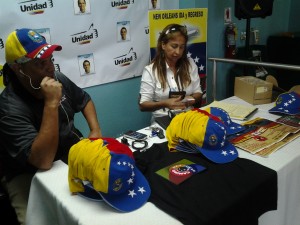
“If there is some kind of trampa,” he said — using the Spanish word for “trickery” — “and we lose by less than 500,000 votes, there will be a problem,” said Manrique, who has lived in Miami for 15 years.
He told Ladra that family and radio in Venezuela had reported movement of Irani and Cuban troops — which are there at the behest and control of the Chavez government — and which are suspected to suppress voting or any protest of any questionable outcome.
“That’s why we hope that it is an overwhelming victory,” Manrique said. “If it is not, there will be blood.”
As a free American citizen, Ladra finds it hard that a margin of less than 500,000 would not be a mandate, let alone an overwhelming victory. But this is Venezuela, where the man in charge now — a former lieutenant colonel who led a 1992 coup that failed but made his reputation and propelled him toward the presidency — can pretty much do whatever he wants. That includes refuse to give up his throne.
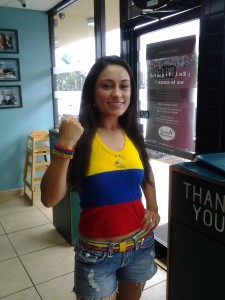
And Capriles — a lawyer whose grandparents fled Poland to escape anti-Semitism — has been the only real, true challenge to the former soldier’s 14 years of iron-fisted, blackmail-busy, socialist rule. He’s already a hero to many Chavez critics in Venezuela and around these parts, having whooped Chavez diehard Diosdado Cabello to win the governor’s seat in 2008 in the country’s second largest state, which includes parts of Caracas.
Thus, the excitement. Thus, the hope.
Wendy Martinez dressed head to toe — earrings to her belt, anyway — in red, yellow and blue to take part in the honk and wave caravan that saw the Venezuelan voters take off Saturday morning and early afternoon. She wishes she could vote, too. But she’s Colombian.
“My husband is Venezuelan and my whole family is half Venezuelan, half Colombian,” Martinez, 24, said.
“Since this person has been dictator in Venezuela, the relationship between the two countries has been affected a lot. Not just with families being separated and border towns having problems, but we are brothers — Venezuela and Colombia — we share the same colors in our flag. Our liberator, Simon Bolivar was born in Venezuela and died in Colombia.”
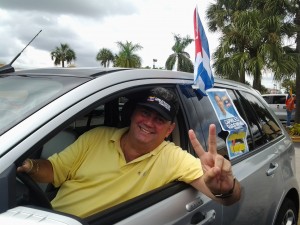
She wasn’t the only non-Venezuelan lending her moral support. Spanish-language radio host Nelson Rubio, a Cuban whose wife is Venezuelan, was at the caravan and talking to other supporters at El Arepazo. Tune in tomorrow to Actualidad radio at 9 a.m. to hear his analysis of today’s elections.
Ladra has only done a little bit of reading into the differences between the two men because, for me, anything is better than Chavez, who does not respect freedom of the press and who repeatedly threatens the United States, the country’s major export market, with shutting off oil supplies for some stupid perceived slight or another. But, while some say Capriles is not that different from Chavez, Ladra sees some immediate differences, from a Newsday article published today, that I like. A lot.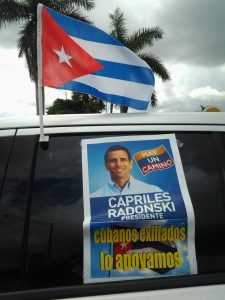
Capriles, who has drawn larger and larger rallies as he campaigns, is against nationalizing any more businesses and wants a full review of those that have been nationalized with a possible rollback plan in mind.
He applauds Chavez’s expansion of education (read: tries to appeal to Chavez half-loyalists a little bit), but says the program has been poorly developed, unorganized and, as a result, rife with corruption (oops, there goes that).
He was arrested once and served four months in jail for protesting at the Cuban Embassy.
And he drinks Red Bull.
And he has never lost an election.
Let’s hope he stays on that streak.

